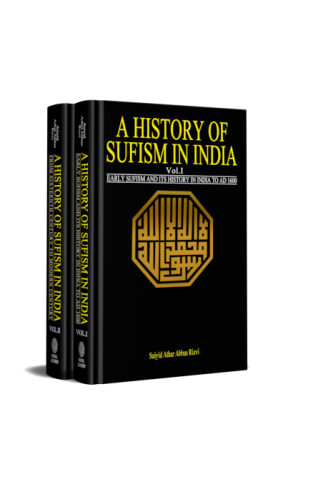A HISTORY OF SUFISM IN INDIA Volume-I & II
A HISTORY OF SUFISM IN INDIA Volume-I & II
By:
-
Rs 2,400.00
- Ex Tax :Rs 2,400.00
- Price in loyalty points :2040
Due to constant currency fluctuation, prices are subject to change with or without notice.
A HISTORY OF SUFISM IN INDIA Volume-I & II
The first volume of A History of Sufism in India outlined the history of Sufism before it was firmly established in India. Second volume starts with a brief discussion of the mystical philosophy of Ibn `Arabi, which played a pivotal role in the development of Sufi thought and practices in India, as it did in other Islamic countries and deals with the Qadiriyya, Shattariyya, Naqshbandiyya and the Chishtiyya orders. It also analyses the role of Indian Sufis in the wider Islamic world, as well as Sufi perception of politics and Hinduism. Like the first volume of the work, the present volume is based on the study of source-material in Persian, Arabic and Indian regional languages, falling under the following categories: Collections of letters written by Sufis; Sufi discourses known as maifuzeit; Treatises on the doctrines and practices of Sufi orders; Biographical dictionaries of Sufis (a) the individual orders, (b) general; Biographical dictionaries of poets; Biographical dictionaries of nobles; Medieval geographies and accounts written by travellers, sailors and pilgrims; General and dynastic histories of the period. Sufis wrote letters to their teachers, disciples, friends and relations. These letters are more valuable for an understanding of the stages in the development of their theories than the treatises they wrote on their teachings. They also offer a valuable background to some important historical events and social and religious controversies










